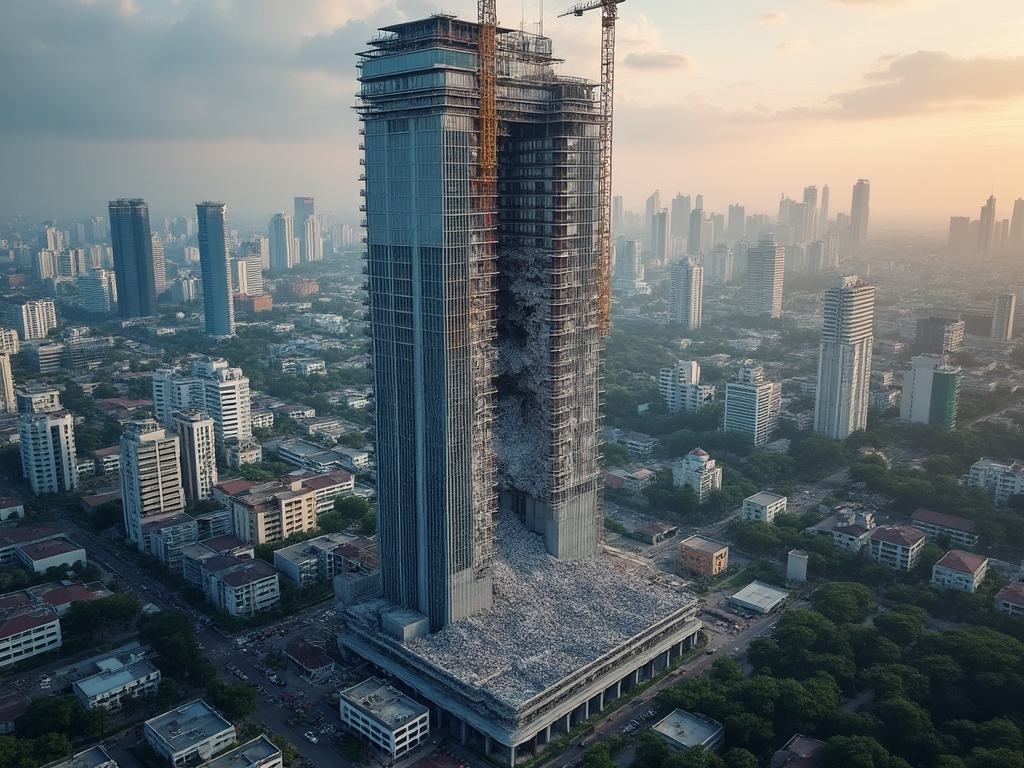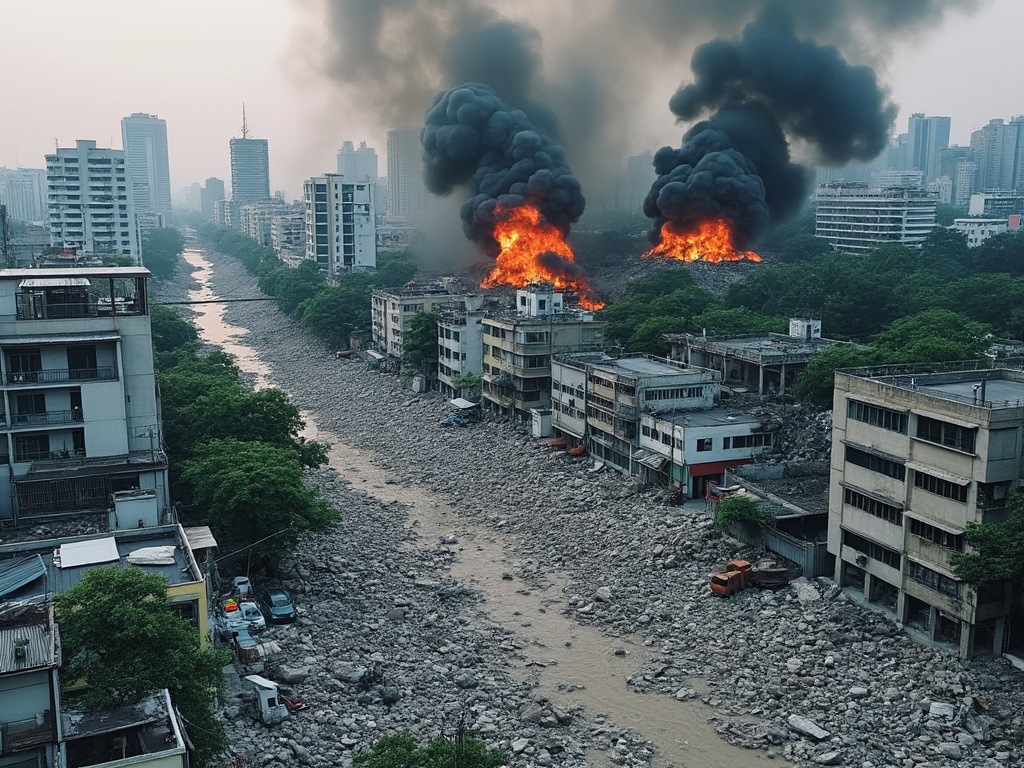
A recent earthquake-induced collapse of a Bangkok skyscraper highlights potential issues with building materials and oversight in the Thai construction sector.
The collapse of a 30-storey tower in Bangkok, Thailand’s capital, has resulted in at least 13 confirmed fatalities and has raised significant concerns regarding the quality of construction practices in the region.
The incident occurred during an earthquake last week, with the tower—a part of the State Audit Office project located in the Chatuchak district—crumbling to the ground while numerous other structures in the city sustained damage but remained standing.
Reports indicate that thermal imaging has suggested that additional bodies might be trapped beneath the debris, with rescue efforts ongoing.
The building, which was a joint venture between Thailand’s Italian-Thai Development company and the China Railway Number 10 Engineering Group, a local subsidiary of the state-owned China Railway Group, commenced construction in 2020. The project had already encountered significant delays and faced allegations of irregularities amounting to around US$60 million in costs.
Investigation into the collapse has unveiled troubling findings regarding the construction materials utilized.
Tests conducted on steel rebar revealed that certain samples did not meet standard requirements, as reported by Nontichai Likhitaporn, inspections director at the Thai Industrial Standards Institute.
Investigators are currently assessing the role these substandard materials may have played in the tower's catastrophic failure, although no definitive causal link has been established at this time.
This incident marks a significant event in a country where construction safety has increasingly come under scrutiny, particularly concerning the involvement of foreign contractors.
As authorities continue to investigate the circumstances surrounding the collapse, there are mounting calls for a thorough review of industry standards and oversight mechanisms in Thailand’s construction sector.
The incident occurred during an earthquake last week, with the tower—a part of the State Audit Office project located in the Chatuchak district—crumbling to the ground while numerous other structures in the city sustained damage but remained standing.
Reports indicate that thermal imaging has suggested that additional bodies might be trapped beneath the debris, with rescue efforts ongoing.
The building, which was a joint venture between Thailand’s Italian-Thai Development company and the China Railway Number 10 Engineering Group, a local subsidiary of the state-owned China Railway Group, commenced construction in 2020. The project had already encountered significant delays and faced allegations of irregularities amounting to around US$60 million in costs.
Investigation into the collapse has unveiled troubling findings regarding the construction materials utilized.
Tests conducted on steel rebar revealed that certain samples did not meet standard requirements, as reported by Nontichai Likhitaporn, inspections director at the Thai Industrial Standards Institute.
Investigators are currently assessing the role these substandard materials may have played in the tower's catastrophic failure, although no definitive causal link has been established at this time.
This incident marks a significant event in a country where construction safety has increasingly come under scrutiny, particularly concerning the involvement of foreign contractors.
As authorities continue to investigate the circumstances surrounding the collapse, there are mounting calls for a thorough review of industry standards and oversight mechanisms in Thailand’s construction sector.





































